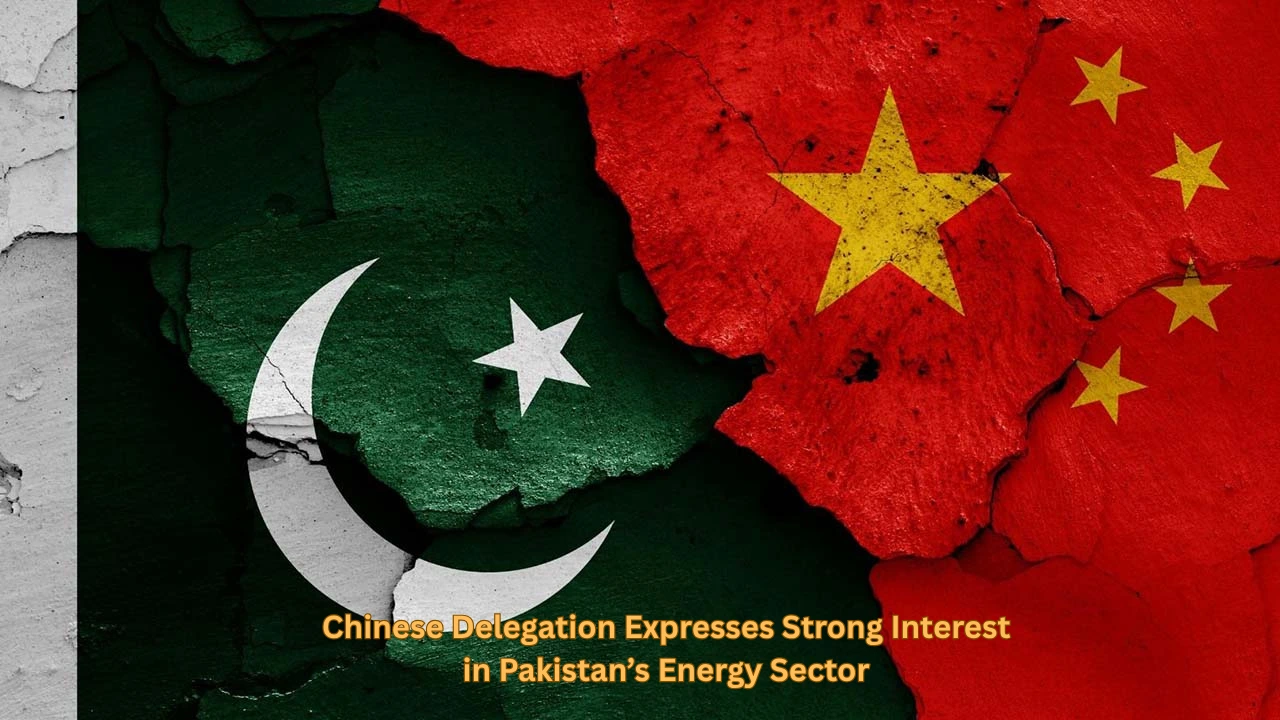A new Chinese business delegation has arrived in Pakistan with bold priorities. Led by Yi Jiang, Director of the All-China Federation of Industry and Commerce (ACFIC), the team visited Federal Minister for Energy Sardar Awais Ahmad Khan Leghari at the Ministry of Energy in Islamabad.
The delegation aims to forge real partnerships on investment, industrial relocation, and technology transfer in Pakistan’s energy sector.
They brought practical proposals. These include shifting Chinese manufacturing to Pakistan, engaging local businesses, and sharing clean energy technologies.
This comes as China looks to deepen industrial links across 155 countries alongside Pakistan.
Chinese Plans Focus on Energy and Clean-Technology Transfer
The Chinese group showed clear interest in energy-related industries:
- Electric vehicles (EVs) and charging infrastructure
- Lithium storage projects
- Solar panel manufacturing and distribution
- Crypto-mining as grid management tools, particularly for flexibility
They praised the Matiari transmission line project as a standout success in Pakistan’s energy modernization.
During the meeting, Minister Leghari confirmed that Pakistan is ready to support industrial collaboration, technology exchange, and foreign direct investment (FDI). He added that government subsidies on electricity are not feasible under current fiscal constraints.
The Minister invited the delegation to submit fully fleshed-out business models that are financially viable and align with Pakistan’s national interest.
Why This Matters: Pakistan-China Energy Collaboration Deepens
This interaction signals a new phase in Pakistan–China energy cooperation. Under the Belt & Road Initiative (BRI) and CPEC, China has financed and built major coal, solar, and hydropower projects in Pakistan. These include:
- The Hubco coal power plant (1,320 MW, in Balochistan)
- The Matiari‑Lahore high-voltage transmission line (4,000 MW capacity)
Pakistan seeks to diversify beyond fossil fuels. The Chinese delegation’s interest in EVs, solar tech, and lithium storage may signal future investment in clean energy and grid modernization.
This aligns with Pakistan’s broader target of generating 60% of energy from renewables by 2030 and supporting 30% EV penetration, as outlined by Minister Leghari at regional forums.
The delegation flagged that private Chinese companies across sectors are exploring new ventures in Pakistan. ACFIC aims to expand its footprint in 155 partner countries, with Pakistan among key targets.“Read: Chinese delegation’s growing interest in energy sector“
Strategic Implications for Trade, Tech, and Energy
This move could deepen Pakistan’s energy diplomacy with China. Foreign energy investments, if executed wisely, may help reduce:
- Energy import costs
- Electricity subsidies burdens
- Dependence on volatile global fuel markets
At the same time, Pakistan must weigh risks tied to high-cost Chinese energy debt. Previous debt restructuring talks with Chinese partners have focused on transition to domestic coal usage and debt reprofiling.
If the Chinese delegation’s project proposals proceed, they may align with Pakistan’s plan to balance energy affordability, security, and sustainability.
Conclusion: Chinese Interest Signals New Chapter in Pakistan Energy
The arrival of the Chinese delegation led by ACFIC marks a pivotal moment in Pakistan’s energy and industrial strategy. Their expressed focus on EV infrastructure, renewables, energy storage, and crypto-energy flexibility reflects an evolving China‑Pakistan relationship.
If approved, these ventures could deliver a new wave of foreign direct investment, help reduce energy costs, and accelerate Pakistan’s clean energy ambitions. The success of such cooperation will depend on viable, self-sustaining proposals that support Pakistan’s long-term economic and energy goals. Clicks here for latest news.


